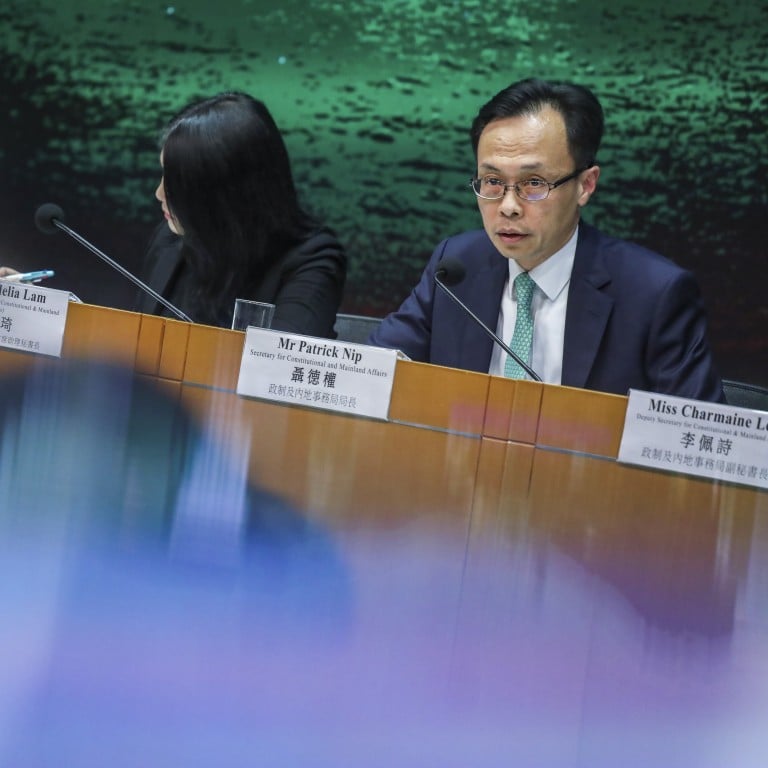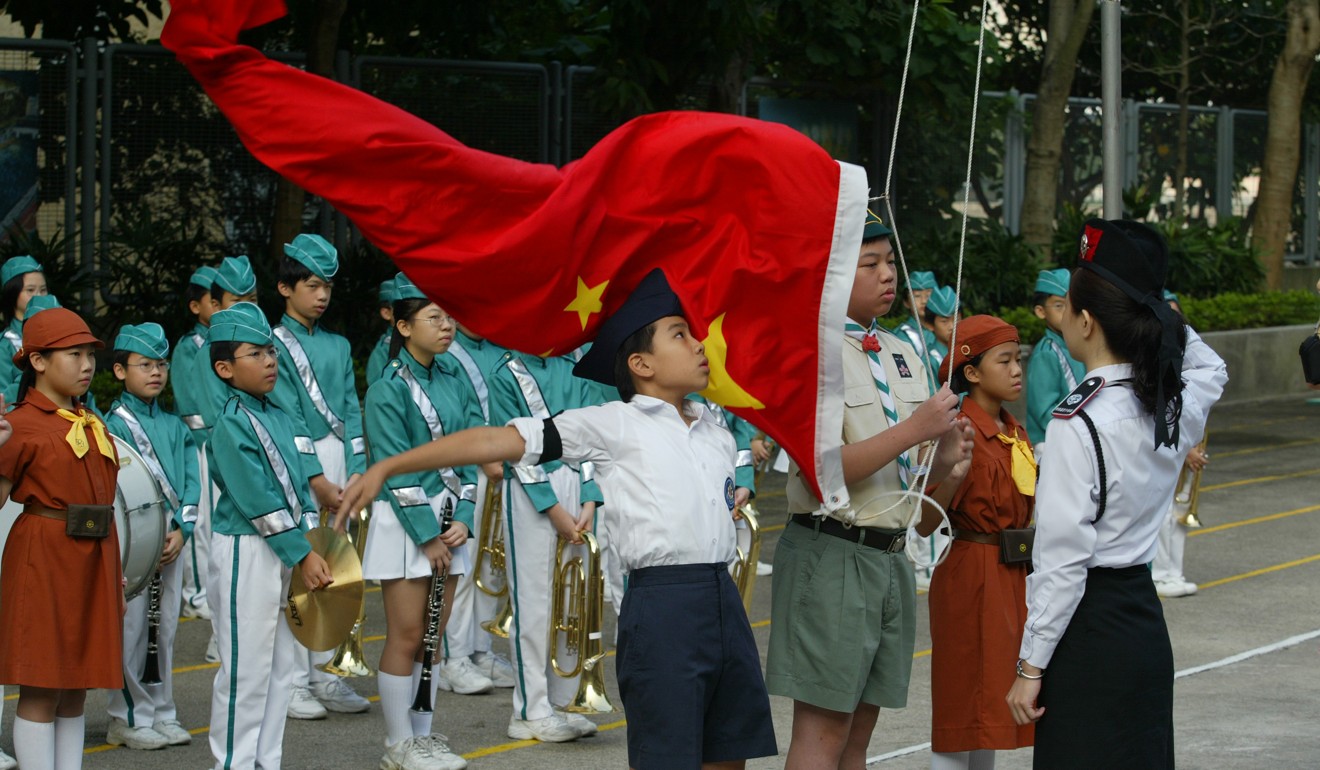
New China national anthem law leaves Hong Kong schools in a quandary over whether to report pupils that insult song
- New legislation makes disrespecting song a criminal offence, but will teachers report students to police?
- Secretary for Constitutional and Mainland Affairs Patrick Nip reveals government consulted Beijing on bill
Hong Kong schools are facing a potential struggle over whether to report any abuse of China’s national anthem on their campuses, and how to handle complaints about their students insulting the song, after doing so becomes a criminal offence under new legislation set to take effect this year.
Concerns were raised on Thursday by Teddy Tang Chun-keung, chairman of the Hong Kong Association of the Heads of Secondary Schools, a day after officials unveiled a bill that would require pupils to learn and sing the national anthem in subsidised, international and special schools.
Secretary for Constitutional and Mainland Affairs Patrick Nip Tak-kuen, who said earlier that all schools were on the same page regarding the need to follow the new national anthem law, also revealed that the local government had consulted Beijing throughout the drafting of the bill.
“We certainly discussed with the central government … on every part of its content,” he said on a radio programme.

Although no punishment is specified for schools that fail to comply, experts have urged officials to give further guidance to international schools, where educators and pupils might not understand the Chinese language or culture.
Ruth Benny, founder of Hong Kong education consultancy Top Schools, said: “For children who are not Chinese, they might feel disconnected from the song.”
On Wednesday, Nip said the Education Bureau had discussed the issue with international schools, and they had no problem educating students on the history and spirit of the anthem.
A government source who spoke with the city’s international schools said not many of them had been teaching the song, but most would not find it difficult to comply with the new law.
“They could do it in a flexible way,” the source said. “No exams are required, they just need to teach it in a morning assembly, or in music lessons.”
New law will give authorities two years to charge anyone who insults anthem
But education sector lawmaker Ip Kin-yuen called on the government to ensure that their consultation with schools was thorough.
“For the Japanese International School, would their teachers find it embarrassing to teach the Chinese national anthem?” Ip asked.
The March of the Volunteers was originally written for the mainland film Children of Turbulent Times, which premiered in 1935 and portrayed a political awakening of young people who enlisted as volunteers to fight Japanese invaders.
The Post approached the Japanese International School for comment, but it did not respond.
Veronica Booth, communications and public relations manager of Hong Kong International School, said while they were not very clear about the new requirements, they would look into the law.
“We have many administrators and teachers who have taught in China, and we could get some good advice,” she said.

Ben Keeling, principal of Shrewsbury International School Hong Kong, said the school had been following the situation.
“We are in close communication with the Education Bureau regarding these requirements,” he said.
A spokeswoman for the English Schools Foundation, which is the largest provider of international education in Hong Kong, would only say that, “like all bodies in Hong Kong, we operate according to our ordinance and the law of the land”.
Under mainland China’s 2017 national anthem law, the song must be included in secondary and primary education. But, it was doubtful whether the law applied to international schools.
A representative from the St Paul American School in Beijing told the Post on Thursday that while they play the song during flag-raising ceremonies, they do not teach it.
“We are an American school, so we don’t teach them the national anthem,” the person said.
However, some international schools in Malaysia and Singapore do teach the host countries’ national anthems.
Hong Kong students react to proposed Chinese national anthem law
The Prince of Wales Island International School in Penang, Malaysia, said its students are taught the Malaysian national anthem during their music lessons.
“We also sing it during special events,” said a school representative.
The National Anthem Bill introduces a maximum fine of HK$50,000 (US$6,410) and three years in prison as penalties for publicly and intentionally insulting the anthem.
Tang, principal of The HKMA K.S. Lo College in Tin Shui Wai, said he was worried the school would receive complaints about students not singing the anthem properly.
Asked if teachers would report students to the police if they intentionally insulted the anthem, Tang said: “It will be a challenge for educators. But schools are education institutions, we tend to give young people chances when they make mistakes so that they learn.”
Meanwhile, civic groups and five pan-democrats issued a joint statement on Thursday saying the proposed legislation was a way to force people to be patriotic.
Additional reporting by Zoe Low and Sum Lok-kei


